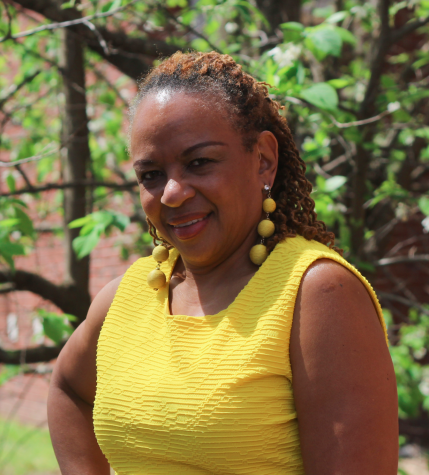What You Need to Know About Colorism

Colorism is so prevalent, yet not many people know what it is and what they can do to stop it.
This is exactly why Deep Dive is tackling the controversies and explanations behind colorism. Focusing on how colorism affects communities from within.
With that focus we asked students about their experience with colorism and how it affected them. We also wanted to get a professional take on what colorism is, so Dr. Maxine Bryant enlightened us about the background and her own experience with colorism. She is the Director of the Center for Africana Studies and Gullah Geechee Cultural Heritage Center.
What is Colorism?
Bryant says, “Colorism is the degradation of one skin color underneath another or the price of one skin color over another. Usually hits lighter skinned people who are given privileges, who are regarded as being perhaps smarter or better than darker skin people.”
– These decisions are based only on skin color
What is the History of Colorism?
Although colorism occurs in all cultures, it is very prevalent in the Black Community.
– Bryant says, “Initially, prior to colonization, or slavery, everybody was the same in the United States with the original colonies. Once captured, Africans were brought over here, and the slave masters begin raping black women, and having children by them.”
– Continuing Bryant says, “Slave children who were mixed were the masters’ children, even though they were black. They were often given preferential treatment, they would be what we call Mulattos. And so they were favored by the white establishment and slavery days.”
During slavery time, the notion of colorism, and the preference for having lighter skin began around the world.

What is the Difference Between Racism and Colorism?
Racism involves the ideology that Bryant explains as “Caucasians systematically have more power because of the way the United States has been established. It’s not because they’re stronger or smarter, but because of their power structure. They are then in a position to be racist.”
– Since Caucasians systematically have more power, they are able to have the authority “to uphold the power to oppress and suppress”.
Colorism is a preference.
– “It denotes the ideology that ‘I like you better’, or ‘I give you more privileges because of the color of your skin’.
How Do You Understand Colorism in Your Own Race?
“I think within the black community, particularly in one, in many women, there’s a preference for darker men. Generally speaking, the preference is for lighter skinned people who are given positions of power, who are perceived to be more intelligent and more articulate.”
– It is important to be aware of biases individuals have towards others and why they think that way. People must be more understanding of other’s cultural backgrounds.
Do you think that we are progressing towards having less colorism? The movement to minimize colorism is extremely slow.
– “Many people in your generation are talking about it. We didn’t talk about it. We acknowledged it, but didn’t talk about that. But more people in your generation are talking about it and confronting the notion of colorism and we’re recognizing that we have to stop it within ourselves.”
We as a generation are slowly moving and progressing towards the right direction, but it is an ongoing process we have to be made aware of.
How Prevalent is Colorism at Georgia Southern University?
“I think today’s college students are being conscientious about removing the colorism lines, but I think it has significantly reduced from the days when I was in school.”
– The most important thing is to continue to bring awareness about colorism and educate others on what it is and how to stop it in your own community.










